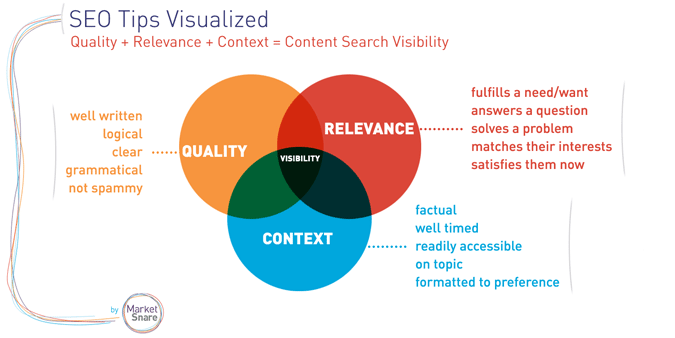Local SEO Tips: Quality Content Without Context And Relevance Will Fail
The days of flippantly regurgitating Google’s “just write great content” mantra should be long behind us. Local visibility and search success require...
1 min read
![]() MarketSnare
:
Jun 23, 2022
MarketSnare
:
Jun 23, 2022
.png)
Over recent years, Google has been increasing the value of local search results. In marketing speak, Google has been giving preference to what we call “local relevance.”
So, if you’re a multi-location business, what are some of best (and worst) strategies to create various web presences for consumers in your local market?
The first helpful thing you can do when trying to tackle this approach is to think of there being three three broad kinds of technical structures that lay the foundation for a company’s or a network’s web presences.
Here are three kinds of web presences that your business could create, each with examples:
(1) Subdirectories.
With this approach, you’ll use one main domain, with one subdirectory (aka subfolder) for each location. Examples:
ACMEwidgets.com/dallas
ACMEwidgets.com/chicago
ACMEwidgets.com/brooklyn
(2) Standalone domains.
With this approach, you’ll have an individual domain for each location. Examples:
ACMEwidgetsDallas.com
ACMEwidgetsChicago.com
ACMEwidgetsBrooklyn.com
(3) Subdomains.
With this approach, you’ll use one main website, with one subdirectory for each location. Examples:
dallas.ACMEwidgets.com
chicago.ACMEwidgets.com
brooklyn.ACMEwidgets.com
We talked about the advantages and disadvantages for each use case above on a recent podcast with guest Kevin Mullett, who is MarketSnare’s Vice President of Program Services. Kevin, along with podcast hosts, Matt Nickols and Elliot Olson, discussed:
The branding and SEO implications of each strategy. (Google treats each strategy a little bit differently.)
The technical implementations and costs of each strategy. (For example, if you have 100 locations and want to register 100 standalone domains, that strategy comes with a substantial cost commitment.)
The trade-offs of each strategy. (For example, if you follow the subdirectory model, that might be less confusing to consumers, but are you really going to list each and every product and service of each and every location of your business in various subdirectories?)
Which option is best for various kinds of multi-location businesses.

The days of flippantly regurgitating Google’s “just write great content” mantra should be long behind us. Local visibility and search success require...

1 min read
For local businesses, a Google Business Profile (GBP), formerly Google My Business, is a foundational must-have to raise awareness and send a signal...

Whether you're a corporate marketer at a franchise or a local franchise owner, you know that ranking in the Google Map Pack is crucial to your...